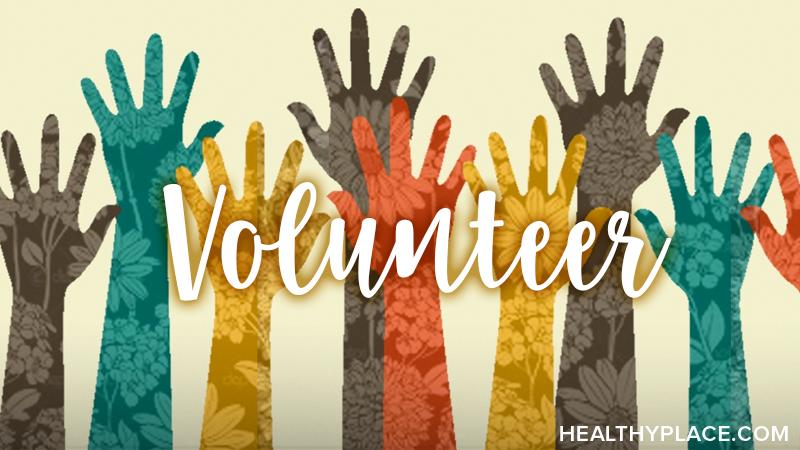Types of Volunteer Roles

Volunteering in mental health offers a diverse range of opportunities, allowing individuals to contribute their skills and compassion in various capacities. The specific role you choose will depend on your interests, skills, and the needs of the organization. Understanding the different types of roles available is crucial in finding the best fit for your capabilities and desired level of involvement.
Crisis Hotline Volunteer
Crisis hotline volunteers provide immediate support to individuals experiencing mental health emergencies. This involves answering calls, texts, or emails from people in distress, offering a listening ear, and providing immediate crisis intervention strategies. Responsibilities include active listening, de-escalation techniques, resource identification, and safety planning. Daily tasks might involve handling multiple calls simultaneously, navigating complex emotional situations, and collaborating with other hotline staff to ensure the safety and well-being of callers. For example, a volunteer might spend their shift assisting a caller experiencing suicidal ideation, guiding them through coping mechanisms and connecting them with emergency services if necessary. This role requires excellent communication skills, empathy, and the ability to remain calm under pressure.
Peer Support Volunteer
Peer support volunteers use their lived experience with mental health challenges to support others. They provide empathy, understanding, and encouragement to individuals navigating similar struggles. Responsibilities often include facilitating support groups, offering one-on-one peer support, and sharing personal experiences (while maintaining confidentiality). Daily tasks might involve leading a group discussion on coping with anxiety, providing emotional support to a new member of a support group, or sharing personal strategies for managing symptoms. This role requires strong interpersonal skills, self-awareness, and the ability to build trust and rapport. Prior experience with mental health challenges is often beneficial but not always required.
Administrative Support Volunteer
Administrative support volunteers assist with the day-to-day operations of mental health organizations. This could include tasks such as data entry, filing, scheduling appointments, answering phones, and assisting with fundraising events. Daily tasks might involve organizing client files, responding to inquiries, preparing materials for workshops, or helping with event logistics. This role is ideal for individuals with strong organizational skills, attention to detail, and proficiency in computer programs. While less direct client contact is involved, administrative support plays a vital role in ensuring the smooth functioning of the organization and its ability to serve clients effectively.
| Role | Required Skills | Experience Level | Example Daily Task |
|---|---|---|---|
| Crisis Hotline Volunteer | Active listening, de-escalation, crisis intervention, empathy, communication | Variable; training provided | Answering calls from individuals experiencing suicidal thoughts and providing immediate support. |
| Peer Support Volunteer | Empathy, interpersonal skills, communication, self-awareness, lived experience (beneficial) | Variable; training provided | Facilitating a group discussion on coping mechanisms for depression. |
| Administrative Support Volunteer | Organizational skills, attention to detail, computer proficiency | Beginner to intermediate | Organizing client files and scheduling appointments. |
Ethical Considerations and Boundaries: How To Become A Mental Health Volunteer

Volunteering in mental health requires a strong ethical compass and a commitment to upholding professional boundaries. Understanding and adhering to these principles is crucial for both the well-being of the clients and the integrity of the volunteer program. Neglecting ethical considerations can lead to harm, legal repercussions, and damage to the reputation of the organization.
Ethical considerations in mental health volunteering encompass a broad range of responsibilities, demanding careful consideration of the power dynamic inherent in the volunteer-client relationship. Maintaining professional boundaries is paramount to ensure the client’s safety and prevent any potential exploitation or harm. This includes recognizing and avoiding dual relationships, maintaining appropriate communication styles, and understanding the limits of your role as a volunteer.
Maintaining Professional Boundaries with Clients, How to become a mental health volunteer
Professional boundaries are essential to prevent any blurring of lines between the volunteer-client relationship and personal life. This prevents potential harm to the client, maintains the integrity of the service, and protects the volunteer from potential legal and ethical issues. For example, a volunteer should avoid engaging in social activities with clients outside of the volunteer context, sharing personal information that could be perceived as inappropriate, or accepting gifts of significant value. A clear understanding of professional boundaries, consistently reinforced through training and supervision, is critical for ethical practice.
Examples of Ethical Decision-Making
Volunteers may face various situations requiring ethical decision-making. Consider a scenario where a volunteer discovers a client is engaging in self-harm. The ethical response would involve following established protocols for reporting such information to the appropriate supervisor or agency. Another example might involve a client disclosing sensitive information that the volunteer feels compelled to share. In such a case, the volunteer must prioritize confidentiality and only share information with authorized personnel, as stipulated in the organization’s policies. These examples highlight the importance of having a robust ethical framework and access to support and supervision when facing challenging situations.
Best Practices for Confidentiality and Client Privacy
Maintaining confidentiality and client privacy is a cornerstone of ethical practice in mental health. Breaching this trust can have devastating consequences for the client and severely damage the volunteer’s credibility.
- Never disclose client information to anyone outside the organization without explicit permission, except in cases mandated by law (e.g., reporting child abuse).
- Secure all client records appropriately, both physical and electronic, using password protection and secure storage.
- Avoid discussing client cases in public spaces or with individuals who are not involved in the client’s care.
- Be mindful of the potential for unintentional disclosure, such as overheard conversations or inadvertently leaving client documents in public areas.
- Understand and comply with all relevant data protection laws and organizational policies regarding client confidentiality.

Tim Redaksi